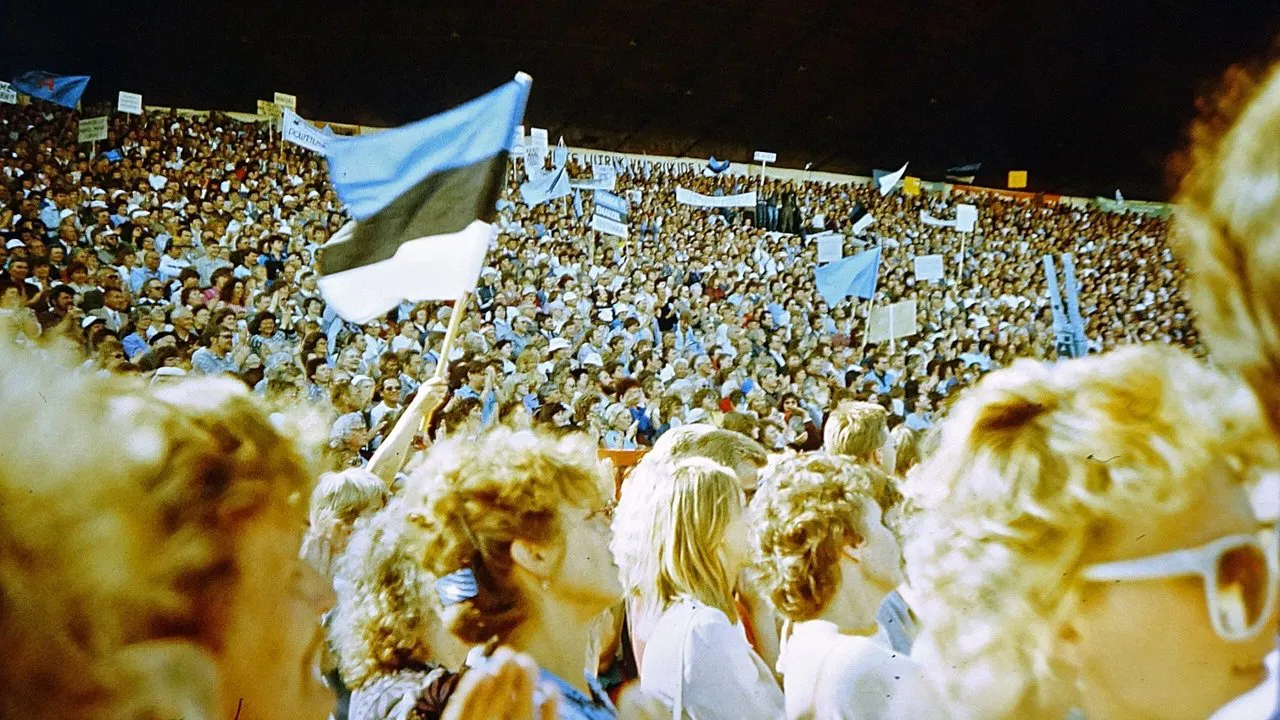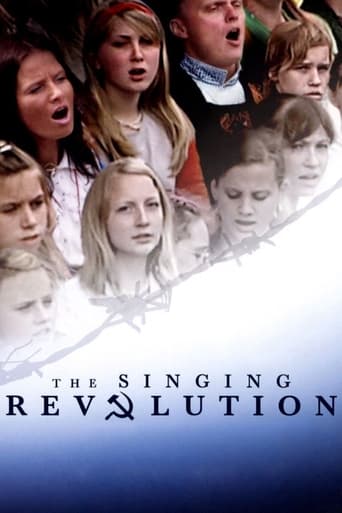

Very well executed
... View MoreA lot of fun.
... View MoreThis movie was so-so. It had it's moments, but wasn't the greatest.
... View MoreIt's simply great fun, a winsome film and an occasionally over-the-top luxury fantasy that never flags.
... View MoreMovie barely underway complete with lingering shots of piles of corpses. But the film makers went to far with their gratuitous inclusion of a Nazi officer executing an adult male with fully depicted pistol shot to the head.I understand a film dealing with the liberation of Estonia and its people requires addressing the oppression and violence they suffered. But an opening montage including an actual execution of a real person who was an Estonian son and comrade and perhaps a brother and a father was itself ruthless. He may have been an innocent victim as the Nazis loved to intimidate through executions. He may have been a member of the Estonian resistance, caught and executed. Whichever he was, I guarantee you he did not give up his life for the sake of bringing drama to a documentary. His memory deserves a more respectful fate.
... View MoreBetween Nazi occupation and decades of Soviet occupation, the Estonians had no weapons with which to resist the Soviet Army. Yet they didn't quit.Two incidents from the movie got me very emotional-- The first was when a crowd from the Russian ethnic minority (who acted like aristocrats within Soviet Estonia and the Estonians should kiss their necks) stormed a government building. This Russian mob was intent on going in and grabbing the leaders of the Estonia-Independence movement. Then an Estonian man got on the radio, throngs of Estonians came, and suddenly the Russians found themselves completely surrounded. Both sides were expecting fighting to break out, and both sides knew that the Soviet Army would use this as an excuse to attack Estonians. But then the Estonian crowd pulled apart, forming a road, and the Russians were able to leave unmolested.The second incident that moved me deeply was when Soviet troops moved into Estonia, and they were trying to attack a TV tower. Estonians showed up, linking arms, and faced the Russian tanks. The Estonians knew that if the tanks rolled, or the Russians' machine guns fired, that they would die painfully -- and yet they filled up the road to the TV tower, and stared into the faces of the Russian tankmen. That is BRAVE.This is a feel-good movie, and it's all 100 percent true. See it, and tell your friends to rent it.
... View MoreIf you're thing is seeing quality documentaries about well kept secrets, 'The Singing Revolution' is the film for you. The film focuses on the tiny nation of Estonia (located in the Baltics,south of Finland),who dealt with hundreds of years of political oppression, from neighboring countries (Poland,Russia,Germany---especially during World War 2). Despite not having a military,the people of Estonia kept their heads about them by celebrating their culture,especially their music (Estonia has a rich legacy of more folk music than any other European country). A good block of this film concerns a yearly music festival,where performers & audience are truly the same thing). After seeing this astonishing documentary,and how the people of this country dealt with oppression from the Nazi's, as well as the Soviet Union thru their music, I exited the cinema with my head in the clouds. It is a very well written (taken from the book of the same name) & directed account of the human spirit & overcoming obstacles. If this film is playing in your area, by all means, don't miss it!
... View MoreI'm pretty generous with films which I like -- if I'm really enjoying something, I'll usually give it a 10. Some people save 10 for that rare film that comes along every couple of years, and I wish I did that, so I could bestow a rare 10 on this film. But, 10 is as high as it goes.I saw it at Cinema Sundays at the Charles, here in Baltimore. As the director, who presented the film, said about persuading people to see the movie, "Let's see, it's a film about a singing revolution in Estonia, what shall we do instead?" But, he said, once people see it they love it. Certainly we did -- there was applause for two-thirds of the credits, and then a long, partially standing, ovation for the director after the credits were over.The film opens with history -- the Soviet occupation of Estonia under Stalin, then the Nazi occupation, then after that the Soviets again.Then it goes to the present day -- a man is conducting what seems to be a chorus of thousands of people, of all ages, in a song -- the subtitles tell you it's a patriotic song. The shots of the faces of the singers and the audience are warm and moving -- most of the people are smiling --some in the audience are holding back tears. The physical beauty of the people and the setting, combined with the welling voices and harmonies, are powerful, entrancing.The movie then describes, through incredible archival footage combined with interviews with people who participated on various sides, Estonia's use of song and non-violence to precipitate the downfall of the Soviet Union.This is a story and a half -- and it's much more powerful because you know, incredibly, it really happened. This is a story of people who, after thousands of years on the land, were occupied by Germany in the 1200s and were essential serfs for 600 years. In 1869 their awakening nationalism led to the first singing festival (Laulupidu).In 1918 the country declared independence, but after about 20 years the land was again occupied, this time by Bolsheviks. The land was then briefly occupied by Nazi Germany, and then became part of the Union of Soviet Socialist Republics.In 1947, the Singing Festival was reborn. To mark the occasion, a composer wrote a tune for a patriotic poem, which translates as "Land of my fathers, land that I love" in English, and it became a musical symbol of the desire for independence of the Estonian people. But in 1969, the 100th anniversary of the singing festival, the Soviets forbade the singing of "Land of my fathers." Nevertheless, the choir, having sung their Soviet songs, refused to leave the stage, and 20,000 audience members began singing "Land of my fathers" in defiance of the authorities. Eventually the Soviets allowed the song's composer onto the stage to conduct the song, as though it was their idea all along.That act of defiance -- that singing of a song -- marked the start of a non-violent revolution which brought independence to Estonia and led directly to the breakup of the Soviet Union. The movie details the various times when things could have gone wrong -- the times when the Estonians might have gone too far and precipitated a bloodbath. But, through a combination of bravery and a stubborn refusal either to back down or provoke, Estonian nationalists created a unique revolution -- the Singing Revolution.This is a gorgeous story -- a story of persistence, bravery, sacrifice. This is a movie which will appeal to the Left and the Right. It's a movie which makes a case for nationalism. It's a movie which will inspire you.
... View More